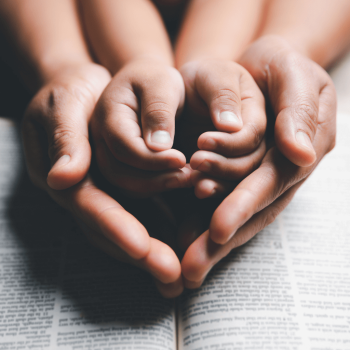When I asked my iPhone this morning, “What time does my son’s flight land?” Siri replied, “We’ve had a problem. Please try again.” If I ask the same question in the future, Siri will know which son I mean along with his flight schedule and thus be able to answer my question. This is because, according to Apple’s announcement this week, Apple Intelligence will soon utilize AI to understand you and respond to your needs. The company’s stock surged over 7 percent to a record high yesterday on the news.
But what about protecting your personal data and privacy?
As the Washington Post explains, your iPhone will run most of its AI-driven tasks on the device itself. If a job requires a web search, the company will use private cloud servers it can ping for help. But you’ll have to trust the company when it says your data will never be stored or made accessible to Apple or anyone else.
For the largest AI tasks, Apple will integrate your device with OpenAI’s ChatGPT after asking for the user’s permission. Elon Musk is highly skeptical that your personal data will then remain private. “It’s patently absurd that Apple isn’t smart enough to make their own AI, yet is somehow capable of ensuring that OpenAI will protect your security and privacy!” he wrote on X. “Apple has no clue what’s actually going on once they hand your data over to OpenAI. They’re selling you down the river.”
However, Apple says only your query will be sent to ChatGPT (with your permission), which will respond to Siri but will have no access to your data. Once again, you’ll have to trust Apple’s promise to protect your privacy.
The “chariots” and “horses” of our day
King David testified, “Some trust in chariots and some in horses, but we trust in the name of the Lᴏʀᴅ our God” (Psalm 20:7). The “chariots and horses” of his day are the technologies of ours.
Applying his insight to our faith as Christians, we are reminded that Jesus is the only Person we can trust unconditionally.
I am 100 percent certain that my family would never knowingly harm me but only and always want what is best for me. The same is true of my love for them. However, none of us is infallible. Even those who love us can hurt us without intending to do so or even knowing they did so.
But Jesus is infallible. He is both omniscient and omnipotent. Thus he can be trusted above all others. His word is always best for us. Serving him is always right for us.
The less we understand him, the more we need to trust him. The more dangerous the disease, the more essential the doctor.
Shaking my fist at God
Here’s the problem: our survival instincts warn us not to trust those whose ways we don’t understand or agree with. If we don’t understand why a stranger wants us to get into their car, we shouldn’t get in. If our doctor could have prevented our disease but did not, we question whether we should trust him with its cure.
It’s human nature to feel the same way about God. Even Jesus cried from the cross, “My God, my God, why have you forsaken me?” (Matthew 27:46)
When my father died, I went into our backyard that night, looked up into the starry sky, and shook my fist at God. When our oldest son was diagnosed with cancer, I took a long walk the next morning and told the Lord how grieved and disappointed I was with him.
The good news is that our Father who “is” love (1 John 4:8) loves us when we don’t love him.
“It doesn’t matter. He believes in you.”
The most powerful line in one of my favorite movies, The Count of Monte Cristo, comes when the falsely imprisoned Edmond Dantes says to the imprisoned priest who became his friend, “I don’t believe in God.” The priest replies, “It doesn’t matter. He believes in you.”
While I appreciate the priest’s second statement, I must disagree with the first. Whether we trust in God or not does matter. In fact, it matters now and for eternity.
Not because we must love God in order for him to love us. As we’ve seen today, his love for us is unconditional—it cannot be earned or lost by our merits. Rather, like any gift, God’s love must be received to be experienced. A Christmas present is just a decoration until it’s unwrapped.
There’s another factor to consider as well: the degree to which we trust our Father’s love is the degree to which we can persuade others to trust him as well. As we noted yesterday, Christians who trust God in the midst of crisis are compelling evidence that God is real and relevant to our greatest challenges. Conversely, if my neighbor’s son doesn’t trust his father, why would I?
Steve Green’s song resonates in my spirit as I write these words: “May all who come behind us find us faithful.” Rick Warren is right:
“The ultimate test of faith is not how loudly you praise God in happy times but how deeply you trust him in dark times.”
How “deeply” will you trust your Father today?
Wednesday news to know:
- President Joe Biden’s son, Hunter Biden, is convicted of all 3 felonies in federal gun trial
- Hamas says it accepts UN-backed Gaza truce plan, US cites “hopeful sign”
- Tony Evans steps away from ministry, citing old sin
- Violent crime rate falls sharply after pandemic surge
- On this day in 1987: President Reagan challenges Gorbachev to “Tear down this wall”
*Denison Forum does not necessarily endorse the views expressed in these stories.
Quote for the day:
“Let us renew our trust in God, and go forward without fear.” —Abraham Lincoln













